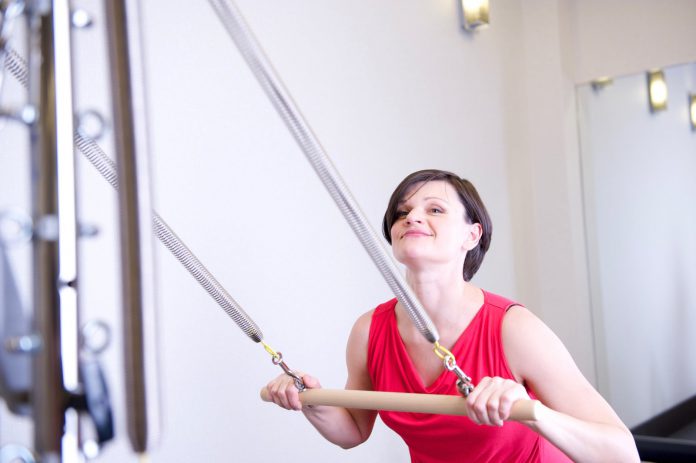“The key to good health for menopausal women is to find ways to boost their metabolism.”
Women go through the change of life as their levels of steroid sex hormones taper off. It begins gradually during perimenopause and continues until the ovaries release the last egg and your periods are over. High levels of estrogen and progesterone are no longer needed to prepare the uterus for a fertilized egg.
While the cessation of periods is welcomed, these low hormone levels cause unwanted symptoms such as hot flashes, mood swings, and a slower metabolism. The key to good health for menopausal women is to find ways to boost their metabolism.
What is Metabolic Health?
If you have ideal measures of blood sugar, blood pressure, triglycerides, cholesterol, and body mass index (BMI), you are in good health.
Studies show that only about one in eight Americans have good metabolic health. Poor metabolic health can result in being overweight and increases your risk for several health conditions such as diabetes, blood, and heart disease.
How Menopause Affects Metabolic Health?
“Low estrogen appears to raise the risk of metabolic syndrome in postmenopausal women with insufficient levels of vitamin D.”

Metabolism is like a fat-burning machine that slows as you age. Studies show that menopausal women tend to gain weight faster than earlier or later in life. Researchers believe this could be due to having less muscle and more fat.
Since muscle cells burn more calories than fat cells, the result is fast weight gain. Fat distribution in menopausal women is more likely to build up around the abdomen as visceral fat, a type of fat related to the increased risk of diabetes and heart disease.
Researchers say vitamin D may also play a role in a slower metabolism for postmenopausal women. They measured women’s blood for levels of estradiol, the strongest estrogen hormone, along with vitamin D and found a correlation between the two. Women with lower vitamin D also had lower levels of estradiol while higher Vitamin D was associated with higher levels of estradiol.
The executive director of The North American Menopause Society, Dr. JoAnn Pinkerton, says, “Low estrogen appears to raise the risk of metabolic syndrome in postmenopausal women with insufficient levels of vitamin D. Women with sufficient vitamin D tend to have better measures of blood pressure, blood glucose, and lipids. Low levels of estradiol are associated with less favorable measures of, cholesterol, triglycerides and blood pressure. “Additionally, low levels of vitamin D and estradiol appear to increase the risk of metabolic syndrome.
Natural Remedies to Boost Your Metabolic Health During Menopause?
“Research shows that regular physical activity reduces the risk of all causes of death for menopausal women.”

It’s the increase in abdominal, or visceral fat that’s related to a host of health problems. While hormone therapy may be needed for some situations, it’s not recommended as a way to reduce body fat. Your best bet is natural ways to boost metabolism. Metabolic health during menopause mostly involves diet and exercise. Researchers say that physical activity has the greater effect.
Dieting only lowers caloric intake while exercising helps your body burn calories both during and after physical activity. Building more muscle increases your metabolism resulting in a faster metabolism and greater weight loss. Dieting only affects caloric intake while physical activity burns calories both during and after exercise.
Postmenopausal women satisfied with their weight also benefit from regular physical activity. Research shows that it reduces the risk of all causes of death for them. Exercise reduces “bad” cholesterol and raises “good’ cholesterol, slows your resting heart rate, and reduces the risk of colon and breast cancer and other conditions from kidney stones to diverticular disease.
It’s not necessary to run a five-mile marathon to get the benefits of exercise. Walking at a pace fast enough to get you out of breath for 30 minutes a day lowers your risk of heart disease by one-third or more. Structured exercise isn’t the only way to increase physical activity. Yard work, taking the stairs rather than the elevator, and parking a distance away from work are great ways to get more exercise. The 30 minutes a day can be broken up into chunks of 10 minutes three times a day.
Other natural ways to boost metabolism include the following:

- Eating more protein
- Adding foods containing capsaicin (red peppers) to your diet
- Drinking green or oolong tea
- Drinking cold water
- Getting adequate sleep
Life for postmenopausal women changes because of natural physiological reasons. While diet and exercise are important all through life, they become even more so during and after menopause. Increasing your metabolism at this time lowers the risk of many diseases and conditions. Boosting your metabolism with natural ways is best for combating those natural changes for women.
Sources & Resources:
https://www.medicalnewstoday.com/articles/325465.php
https://www.healthywomen.org/content/article/speed-your-metabolism-midlife





















